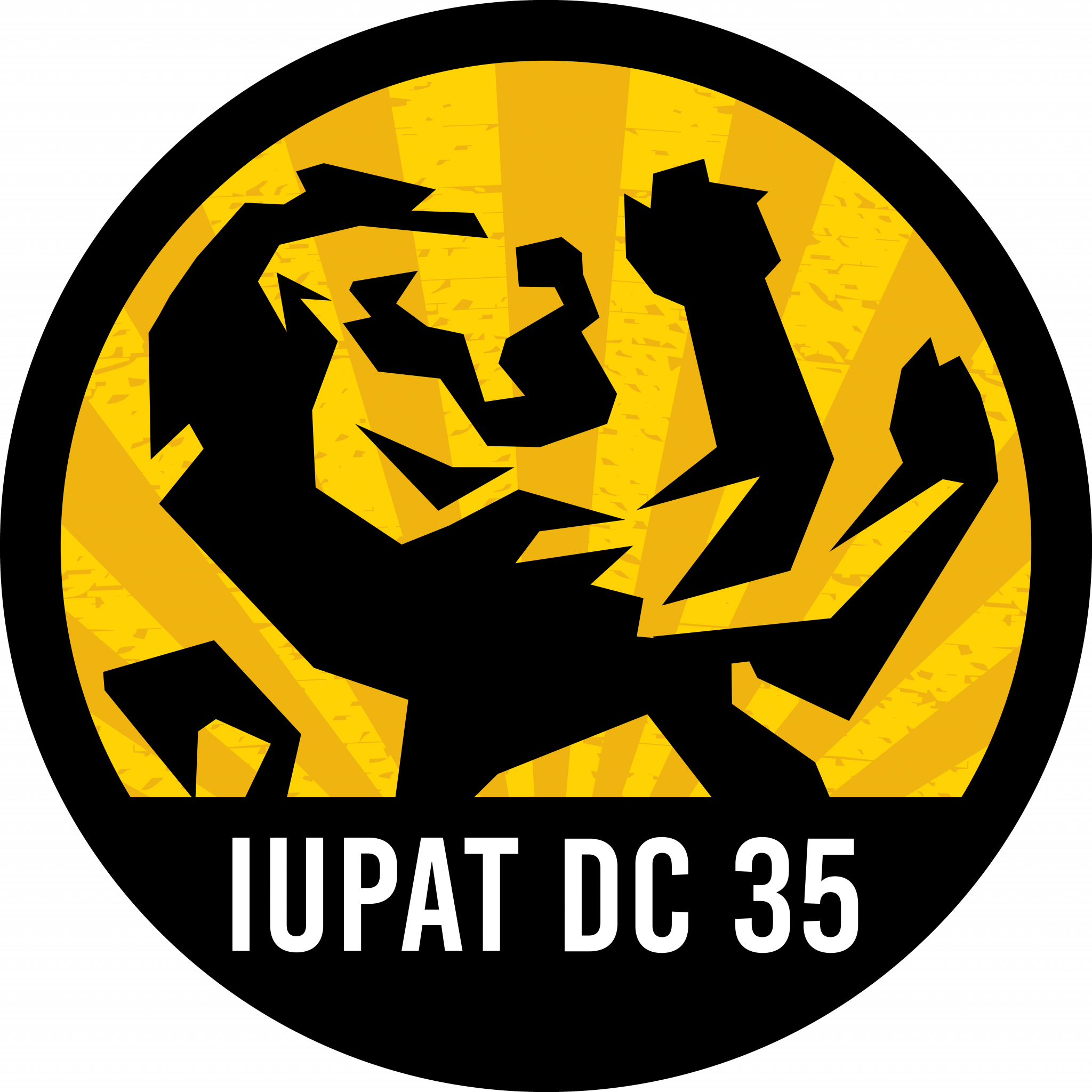MAKE HAY WHILE THE SUN SHINES BY WAYNE MURPHY
Good luck is not lucky; it is a combination of preparation and opportunity. District Council 35 does the small stuff, every day, to seize an opportunity when the time arrives. The Government Affairs Department serves in support of all other aspects of our operations to ensure that we capitalize on every chance to improve the working conditions of our Sister and Brother members and better the lives of all working families. The new administration in Washington, D.C. has begun to provide these opportunities.
Let’s start with a March 9, 2021 statement by President Biden.
“All of us deserve to enjoy America’s promise in full- and our nation’s leaders have a responsibility to deliver it. That starts with rebuilding unions. The middle class built this country, and unions built the middle class….Unions lift up workers, both union and non-union….We should all remember that the National Labor Relations Act didn’t just say that we shouldn’t hamstring unions or merely tolerate them. It said we should encourage unions.”
While none of President Biden’s statement comes as a surprise to any of us, it was an historic act. We have a president, the first in a long time, who embraces unions, sees their value, and encourages organizing and collective bargaining. We need to act now to fully realize the promise that this country has failed to deliver on for many working men and women.
The Protecting the Right to Organize Act (PRO) Act of 2021 will go a long way to fulfilling America’s promise to workers. The legislation passed the U.S. House of Representatives on March 9, 2021 and is on its way to the U.S. Senate. The road will be significantly tougher in the Senate. Given the tight ideological breakdown and the threat of the filibuster, the PRO Act is NOT a done deal. The filibuster is an archaic Senate procedure that effectively allows a single politician the ability to block a vote on a piece of legislation. Once debate on a bill begins the only way to end debate, called cloture, is by a vote of sixty percent of the Senators. If debate is not closed, the bill is never brought to vote, and a piece of legislation can be killed. There is the chance PRO act will be attacked this way by the anti-worker Republican Senators. You will probably also hear that the PRO Act will upset years of settled labor law. This is another red herring.
The accurate historical background begins with the National Labor Relations Act of 1936. This was the Federal law that encouraged unions, collective bargaining and worker organizing. In 1947, under a Republican controlled Congress, the Taft-Hartley law was passed. It was so extreme in the harm it would cause workers that it was vetoed by President Harry Truman. The anti-worker, corporate-favoring majorities in Congress had the votes and they overrode the veto. Taft-Hartley became the law. The changes in labor law were significant; it created “right-to-work” laws, employers could use paid work time to actively campaign against unionization, and it included a clause that required union leader and members to sign an affidavit stating that they had not been a member of the Communist Party. Although Taft-Hartley has become an identifiable word in the union world, organized labor has been fighting its mandates ever since.
If the PRO Act becomes law, it will eliminate State Right-to-Work laws. There are presently 27 states that have right-to-work, and New Hampshire is considering legislation to enact it there as well. You will read in this Newsletter of the efforts of D.C. to again thwart the New Hampshire legislation. The PRO act will make valid all collective bargaining contracts that include a clause requiring union membership, and the payment of dues by all members of a bargaining unit. It will also bring some sense to an employer’s ability to illegally influence a union election. Workers would no longer be forced to attend “captive audience” meetings when the company gives its view on unionization. The PRO Act would also change the test applied to determine whether a worker is an employee or an independent contractor.
Under the direction of BMST Sullivan, the Government Affairs Department has been in contact with many of the members of the U.S. Senate, urging the passing of the PRO Act. The work continues as I write this article, and this will be perhaps the most significant legislative battle of our time. It is perhaps our best chance to reverse the decades-long course of the weakening of unions and of worker’s rights. We must do everything in our power, all the way to the White House, to get this law passed. It will be life-changing for America’s workers.
The recently passed American Rescue Plan Act (ARPA) has some key provisions that will improve the lives of working people. The law allocates $100 million for the Occupational Safety and Health Administration (OSHA). Under the last administration, there were literally thousands of OSHA jobs left unfilled. Safety inspectors and other OSHA officials were nowhere to be found. The ARPA will enable OSHA to better fulfill its role of advancing worker safety. It also extended the $300.00 dollar federal supplement for Unemployment Insurance payments through September 6, 2021. The ARPA also includes a provision that makes the first $10,200.00 of unemployment benefits received in 2020 non-taxable. For those of you who received unemployment in 2020 make sure you check with your tax preparer to make sure you are not paying income taxes on this money.
The new administration will also open opportunities for additional funding sources that just were not there recently. I continue my work in educating policy makers on the merits of the FTI-NE’s accreditation as a post-secondary educational institution and our qualification for U.S. Department of Education funding. Along with a small group of other IUPAT Finishing Trades Institutes, I have been involved in advancing federal legislation to secure sources of revenue for our FTI.
We have been on the defense for a few years; we can flip the script and go on the offense. It will take all of us, talking with policy makers, our families, and neighbors to grab the chances presented to us. We will leave no stone unturned. The time is now.





